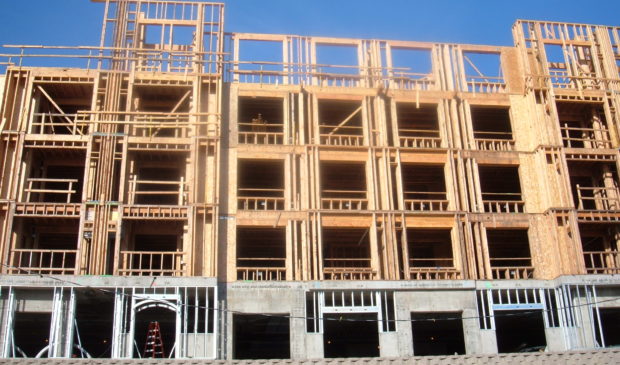Affordable housing advocates want voters to decide $300M bond proposal
Wednesday, July 13, 2022 by
Chad Swiatecki Community groups concerned with affordability issues in the Austin housing market are pushing City Council to approve language for a bond proposal in November that could raise $300 million to build more homes and fund programs related to housing opportunities.
A political action committee called Affordable Housing Bond PAC was organized this month to help coordinate activities related to the bond proposal, which would replenish the mostly exhausted $250 million voters approved in 2018.
Those involved in pushing the bond package will hold a campaign kickoff next Thursday morning at the Learning Center at Jordan at Mueller. Proponents will discuss how inflation pressures, Austin’s continued popularity and the lack of privately funded affordable housing makes $300 million the minimum they feel Council should approve.
“If we take an honest assessment of where we’re at, since it seems like we’ve nearly spent down the $250 (million), then we have to ask ourselves what happens if we let our deeply affordable housing programs run out of money, and what would be the consequences for the community,” said Joao Paulo Connolly, organizing director for the Austin Justice Coalition and a spokesperson for the housing bond campaign.
“We want to push the ball and get (Council) to take the next step. We know what we accomplished with previous bonds but there is a very unpredictable landscape around construction costs and the effects of inflation so there are some unknowns.”
Data gathered by HousingWorks Austin showed the city’s three most recent affordable housing bond packages have helped to build more than 6,700 homes accessible for low-income families, with over 5,400 of those affordable for households earning $88,250 or less per year. There were also more than 3,800 affordable rental units created from those bond packages, with nearly 800 units of permanent supportive housing for the homeless built, and nearly 900 homes repaired to preserve affordability since 2017.
Connolly said Mayor Steve Adler and Council members have mostly listened to what leaders involved in creating affordability have said they need to continue the recent pace of construction. That pace or more is needed to combat rental rates that have increased 30 percent or more on average throughout the city over the past year.
Council is expected to discuss details of the bond package at its late-July meeting, with approval of ballot language expected by mid-August.
“The last (housing bond) was $250 million without inflation and construction costs and a number of other challenges. So if we want to continue this meaningful work I don’t think we should put a bond on the ballot that’s less than $300 million,” Connolly said. “How far above $300 million Council wants to go or if they would prefer to live with $300 million, that’s an open question and they’ll have to assess what their constituencies will get behind.”
While single-family homes have become historically expensive and scarce in recent years, concerns over a national recession may be cooling demand somewhat and causing some investment properties to be up for grabs. Data just released from Reventure Consulting show in May and June there were more than 3,800 new listings of homes for sale, with records going back to 2017 showing local inventory mostly flat.
Even with that moderate change, affordable housing supply needs to be created via public mechanisms, said Walter Moreau, executive director of Foundation Communities.
“The 2018 bond made a difference for thousands of families but it hasn’t totally solved the problem. You can’t escape the fact that housing is capital intensive and so if we want Austin to still be a diverse community without pricing out the people like teachers, musicians and folks who work retail jobs, then we have to come up with the capital to build affordable housing.”
Photo by BrokenSphere, CC BY-SA 3.0, via Wikimedia Commons.
The Austin Monitor’s work is made possible by donations from the community. Though our reporting covers donors from time to time, we are careful to keep business and editorial efforts separate while maintaining transparency. A complete list of donors is available here, and our code of ethics is explained here.
You're a community leader
And we’re honored you look to us for serious, in-depth news. You know a strong community needs local and dedicated watchdog reporting. We’re here for you and that won’t change. Now will you take the powerful next step and support our nonprofit news organization?



